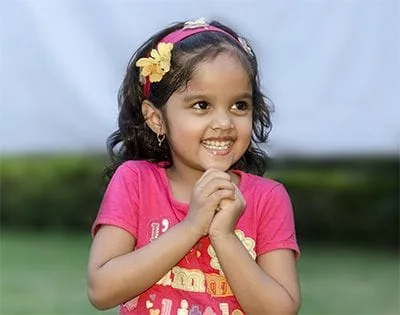
Development
- At age 4 your child will say over 250 words and should be speaking in full sentences. They will be able to share stories and answer questions. They are able to know colors, able to count to 10 and start to know the ABC’s especially those in their name. When asked, they can draw shapes.
- Most four year olds are toilet trained during the day, and some may continue to wet the bed at night
- Motor skills continue to advance including the ability to pedal a tricycle and ride a bike with training wheels. They can run and walk up and down stairs alternating feet on their own.
Safety
- Children are curious and impulsive. They tend to get into situations that can lead to falls, poisonings and burns in the home and outside. Prevention is the key with fencedin yards, wearing helmets and other protective equipment and close supervision. In cars, children should be in the back seat and in a forward-facing car seat with harness.
- Ensure your hot water heater is set at less than 120 degrees. Prevent exposure to hot liquids in the kitchen, cleaning fluids, and hot surfaces. Prevent of tick bites and mosquitos with insect repellant. Sunscreen and sunglasses are recommended.
- Adults should refrain from smoking because of the increased risk for asthma and infections in children exposed to secondhand smoke.
Nutrition
Children should be given three meals per day and offer 2 snacks per day. A good variety of fruits, veggies, yogurt, cheese, nut butters, lean meats and fish should be encouraged. Children can be active participants in prepping and cooking and this encourages family time. Using a pea-sized amount of fluoridated toothpaste twice a day and dental visits every 6 months helps prevent tooth decay. Kids should balance organized activities with free play outside. One hour or more a day of activity is recommended.
Relationships
- Build self-esteem by providing encouragement, praise and spending time together. Children can learn family rules, respect for authority and right from wrong. Appropriate discipline includes consistency of rules and reinforcing good behaviors. Children can start to do small chores, such as making the bed, clearing the table and putting away toys.
- Children can learn all body parts. Begin to discuss privacy and not letting anyone touch or see private parts
- Family time remains important including talk and play.
Quick Links
- Well visit for 1 Month
- Well visit for 2 Months
- Well visit for 4 Months
- Well visit for 6 Months
- Well visit for 9 Months
- Well visit for 12 Months
- Well visit for 15 Months
- Well visit for 18 Months
- Well visit for 2.5 Years
- Well visit for 3 Years
- Well visit for 4 Years
- Well visit for 5 Years
- Well visit for 6-8 Years
- Well visit for 9-10 Years
- Well visit for 11-14 Years
- Well visit for 15-18 Years
